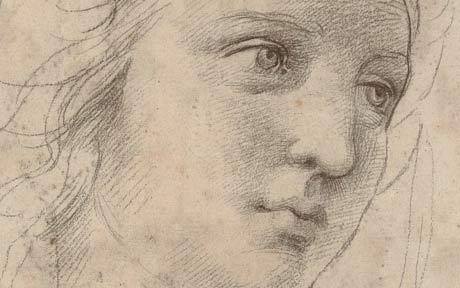Half sheltered from the downpour by the portico of the village hall, the ragged girl watches the approach of a shiny red sports car. It pulls in to the curb, sending a tidal wave of rainwater over anyone standing nearby.
Inside the car, Anne Marie is in no mood to give a damn. This whole excursion into the countryside is proving extremely trying. It’s positively the last time she will agree to do anyone a favour. She peers out through the thrashing windscreen wipers. It never rains like this in London. No wonder yokels and country bumpkins are all soft in the head.
She has parked as close as possible to the village hall, wherein the exhibition is taking place. Thank God her sat nav. has worked. Honestly, these villages, or hamlets or settlements, or whatever they are, all look exactly the same. And damn this rain! She has on a brand new and very expensive bright red sateen raincoat and is not at all keen to get it wet. With a deep sigh of disgust, she throws open the car door and scuttles like a scarlet crab towards the entrance. But something or someone is blocking her path, holding her up.
Anne Marie glares at the obstruction. It’s a young girl. Dripping wet. Bedraggled. Pinched.
“Evening, Miss,” it says mournfully. “Spare a coin or two?”
“In this weather? Certainly not! Get out of my way.”
The forlorn figure retreats.
“Sorry, Miss.”
Anne Marie sweeps on inside, chuntering under her breath like a luxury car at a red traffic light. She hands her dripping coat to a bystander.
“Hang this up for me, will you?” she commands, shaking raindrops out of her hair over his suit. “Somewhere safe.”
Such is her aura of self importance that he obliges without question, despite being leader of the Parish Council and the guest of honour. She breezes inside, collecting a complimentary glass of wine without breaking stride and carving a path through the melee of local artists, art lovers and freeloaders. She stops to take a sip.
“Good God!” she intones audibly.
Once at the exhibition’s epicentre, Anna Marie surveys the work on show all around her.
“Good God!”
How did she ever agree to come to this cultural ghost town? On every side of her loom wall-to-wall painting-by-numbers. Still, she owed Owen a large favour, and his beau is exhibiting (she hopes like mad that he isn’t responsible for the car crash of a still life to her immediate right). What is the shortest time she can realistically spend here? Can she survive a whole ten minutes? She sets off in an anti clockwise direction, averting her eyes from the worst atrocities. While avoiding a particular calamity in black and green, her gaze falls upon an inconspicuous, plainly framed pencil sketch.
“Oh!” she exclaims, involuntarily. “Oh, yes!”
She stops her fevered circumnavigation and stares hard at the picture. It is simple enough on the surface, though beautifully executed in an understated way. But it has some indefinable quality, as if it’s something already known yet completely new. The subject is a girl; scruffy, yet with a striking beauty beneath her ragged clothes and dishevelled hair. Anne Marie knows immediately that she must have it. But some fool has already stuck a red dot in one corner of the frame.
“No, no,” she tells herself. “That’s not right. This can’t possibly be wasted on one of these ignoramuses. It’s mine.”
Almost without thinking, she reaches out an equally red fingernail and prizes off the sticker.
“Pardon me, Miss,” says a quiet voice from just behind her.
She ignores it.
“I’m sorry.” The voice has a gently undulating lilt. Anne Marie turns, frowning. If she was cursed with a guilty conscience she might have felt a pang. But she isn’t and doesn’t.
“That picture be sold.”
“Well, yes. Technically, perhaps. But I am quite willing to pay more for it.”
She turns her most steely glare on the speaker; a small, inconsequential man of advanced years.
“You see, I’m a very well-known art dealer. I’ve come all the way from London.” She speaks with careful deliberation, in case his command of the Queen’s English is less than perfect or his intellect has been impaired by too many years of damp country living. “I wish to buy this picture.”
“It be sold already, Miss.”
“I appreciate that, my good man. But I’m prepared to offer a significantly larger sum for it.”
“Can’t do that. Don’t be fair.”
“Are you the purchaser of this picture? If so, I will give you exactly double the amount you paid for it.”
“Oh no, Miss. I don’t be the purchaser.”
“Well, in that case, I can’t quite see what business it is of yours.”
“I be the one what drawed it.”
Anne Marie peers down at the unprepossessing little man. Can he be serious? He doesn’t look to her as if he could write his own name, let alone create such exquisite pencil work.
“Are you sure?”
“Oh yes, Miss. I be sure, alright. I be there when it were done.”
Anne Marie decides it’s time to discard bluster in favour of charm.
“Well, may I say that you are a remarkably gifted artist. Between you and me, this other stuff is utterly dreadful. I’d quite given up hope of finding anything at all. Until I stumbled across your picture. But now I have, my whole long and arduous trip is suddenly made worthwhile. I really must buy this picture.”
“That don’t be possible, I’m afeared.” The artist rubs a grizzled hand across his sketchily-shaven chin. “But I tell you what I could do.”
“Yes? Yes?”
“I do have a few more pictures back at my home. In my sketchbook. I could show those to you, if you like?”
“What an absolutely marvellous suggestion. Where do you live?”
“No more’n five minutes walk from here.”
“Wait one moment while I fetch my coat.”
As luck would have it, the rain has stopped. Anne Marie feels her spirits start to take wing. She can already imagine the private viewing, for three specific clients. They will cut each other’s throats to buy this sort of work, especially when it’s so brilliantly crafted.
The girl watches them recede down the high street, side by side, an oddly matched pair; the artist small and mildewed, the dealer tall and iridescent. They turn this way and that, across a cobbled mews and down a narrow alleyway. Before long they come to a door. The little man opens it with a large key and stands back to let her inside, into what seems like some kind of storeroom. Amongst the jumble, Anne Marie can just detect a bed, a basin, a cooker, a desk.
“Do you actually live in here?”
“Don’y like it, Miss?”
“It’s very … intimate.” Anne Marie makes an effort not to wrinkle up her nose. “Can I see those sketches now, please?”
The man begins moving items about from one place to another. Eventually he retrieves a cheap sketch pad from under a pile of curtains and a stringless banjo.
“Here they be.”
“Just one book? Is that all?”
“I only took up drawing towards the end.”
With growing excitement, Anne Marie flicks through the pages; quickly and then again, more slowly. They are every bit as good as the one in the exhibition. Even better, perhaps.
“My word! If only you’d started younger. Heaven knows …!” She turns her smile on him, full beam. “I’d like to buy the whole book.”
“The whole book? I dunno …”
“I’ll give you … two hundred pounds. No, three hundred.”
“What? Three hundred pound, for that old book o’ stuff? Go on. You be pulling my leg.”
“No. I’m deadly serious. I know it seems a lot of money, but I really like your work. Here.”
She opens her bag and begins counting notes into his hand. “Fifty. One hundred. Two. Two fifty. Three.”
“Are you quite sure, Miss?”
“Completely. Now, I must be getting back to London. Thank you. Oh, and here’s my card. When you have some more pictures finished, I’d be very happy to take a look at them.”
“Oh no, Miss. There don’t be no more.”
“I know. But when there are, do call me, won’t you? Goodbye.”
It is only when she has started the engine of her car that Anne Marie realises that she didn’t even find out his name. Well, never mind. It doesn’t matter. She drives on and on, her excitement mounting.
The girl slips into the doorway and begins to spread the newspaper bedclothes across her cardboard bed. The sound of a cat calling out nearby makes her look up. A buff envelope is propped on a ledge just above her head. It wasn’t there that morning. She takes it down. To her surprise, she finds her name written on it.
Anne Marie can contain her enthusiasm no longer. Pulling over to the side of the road, she picks up the sketch pad, kisses its grubby cover and opens it.
The girl tears open the envelope and lets out an audible whistle. Inside are six crisp fifty pound notes.
Anne Marie can scarcely believe her eyes as she leafs with ever-increasing desperation through the pages. She lets out a low but near-hysterical scream.
Every single page in the book is blank.
END
Peter d’Aguilar asserts the moral right to be identified as the author of this work








One Response
A stylish, well-written story with a satisfying twist.